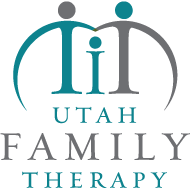Breaking the Chains of Shame: A Path to Healing and Connection
Understanding the Power of Shame
Shame often stems from a place of feeling judged or misunderstood by others. It’s like an invisible barrier that keeps people trapped in their cycle of destructive behaviors, making it difficult for them to seek help.
These disconnective behaviors are because Shame convinces individuals that they are unworthy of love, acceptance, and help – feelings that can be particularly potent when dealing with issues such as addiction or mental disorders.
Table of Contents
Real-Life Impact of Shame
In my experience as a therapist, I’ve seen the effects of Shame firsthand. One example was a young woman who struggled with an eating disorder for years.
She felt so ashamed about her condition that she isolated herself from friends and family, convinced they would judge her harshly if they knew the truth about her struggles.
Addressing Shame and Fostering Healing
The first step towards healing is recognizing and acknowledging this Shame. Once we become aware of its presence in our lives, we can start working on dismantling its harmful effects.
So, how do you address Shame?
The answer lies in empathy and compassion, two powerful antidotes to Shame.
When someone feels heard, understood, and accepted unconditionally – even at their worst – it creates a safe space where healing can begin.
One technique I often use with my clients is called “cognitive restructuring.”
This exercise involves helping them identify negative thought patterns driven by Shame (such as “I’m not good enough” or “I don’t deserve happiness”) and replacing these thoughts with healthier ones (like “Everyone makes mistakes” or “I am deserving”).
Another critical aspect is fostering open communication within relationships affected by these issues.
For instance, loved ones should avoid blameful language but instead express concern using ‘I’ statements like “I feel worried when…” rather than “You always…”.
Lastly, remember healing takes time – there are no quick fixes here!
Patience coupled with consistent efforts will lead to long-term recovery.

Supporting Loved Ones on the Path to Healing
In conclusion, Shame may seem impossible when supporting someone struggling with addiction or mental health disorders.
However, by understanding its role and using empathy and compassion to counteract it, we can help our loved ones start their journey towards healing.
Remember: It’s not about fixing them or their problems; it’s about becoming healers who provide the tools needed for self-recovery.
This approach empowers individuals to retake control of their lives – a far more sustainable solution in the long run.
So, next time you feel helpless watching your loved one struggle, remember this blog post. Use these insights as a guide – they might just be what your relationship needs to foster healing and connection amidst difficult times.
Seeking to Understand Shame More? Listen to Rob explain the Shame Matrix.
Action Items
1. Understand the role of Shame: Recognize that feelings of inadequacy or unworthiness, also known as Shame, often underlie issues such as addiction and mental health disorders.
These feelings can drive individuals to isolate themselves and hinder their healing process.
2. Be patient with your loved one: Acceptance is vital in healing, but it takes time for an individual to open up and accept help. Be patient during this period.
3. Become a healer, not just a fixer: Instead of trying to fix problems momentarily, teach people’ how to find healing within themselves’.
Becoming a healer means fostering long-term recovery by equipping them with the tools they need for sustainable change.
4. Facilitate communication: Open lines of communication within families to facilitate understanding, which further aids the healing process.
5. Seek professional help when necessary: If you feel overwhelmed or unsure how best to support your loved ones, contact Utah Family Therapy we have experience facilitating communication and promoting healing processes in families.
6. Educate yourself on these issues: Understanding what drives disconnect, like refusal of assistance, can better equip you to deal with them effectively while providing much-needed support for your loved ones.
7. Encourage self-love over self-loathing: During moments like relapses where your loved one may express self-loathing due to deep-seated Shame, encourage them towards self-acceptance and love as part of their recovery journey.
